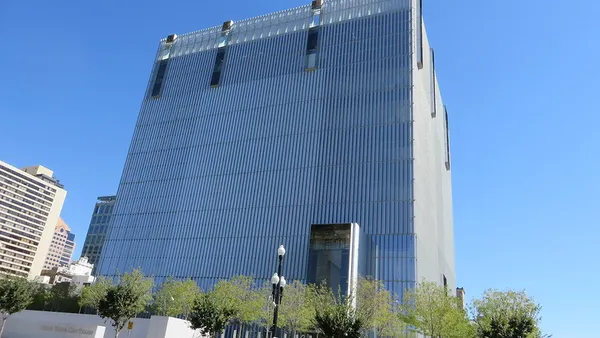Dive Brief:
- An expletive-laced complaint made by one employee to another, in a restroom open to the public and customers, about a client wasting his time did not constitute protected concerted activity, ruled a three-member panel of the National Labor Relations Board (NLRB) (Quicken Loans, Inc. and Austin Laff, No. 28-CA-146517 (April 10, 2019)).
- There was no evidence that this "brief conversation" reflected common concerns that would indicate "concerted activity," said the NLRB, and it was not undertaken with the goal of "mutual aid or protection," so it was not an activity protected by the National Labor Relations Act.
- Because the employee's complaint and his co-worker's noncommittal response contemplated "no action at all," the conversation amounted to "mere griping," the agency concluded. Accordingly, the Board reversed an ALJ's earlier determination that the conversation was protected and that the responding co-worker was unlawfully discharged for participating in it.
Dive Insight:
Enforcing appropriate employee behaviors while respecting workers' rights to engage in concerted protected activity can be a tricky tightrope for employers to walk. At the outset, it's important to remember that all employees enjoy the right to engage in concerted protected activity, even those in non-union workplaces.
Notably, employee discussions about compensation are a frequent trigger issue. NLRB recently struck down a Lowe's policy prohibiting employees from discussing their pay, even though the policy was designed to ensure compliance with antitrust laws and protect non-public business information rather than stifle employee communications. Burger King similarly landed in hot water when it tried to crack down on employees agitating for a $15 per hour minimum wage and discussing, in the company parking lot, a potential strike.
The threat of punitive action often can be what tips the scales in favor of employees. Yelling at workers on protected heat breaks to "get back to work" may have been ill-advised from a morale perspective, but it did not violate the NLRA, according to the NLRB. There was no suggestion that the manager was contemplating adverse action against the employees, even though he "loudly and aggressively" ordered them to return to work.
However, the NLRB said this same employer did violate the law when it "coercively interrogated" an employee, told him to direct his work-related concerns to management and threatened to terminate another employee.












